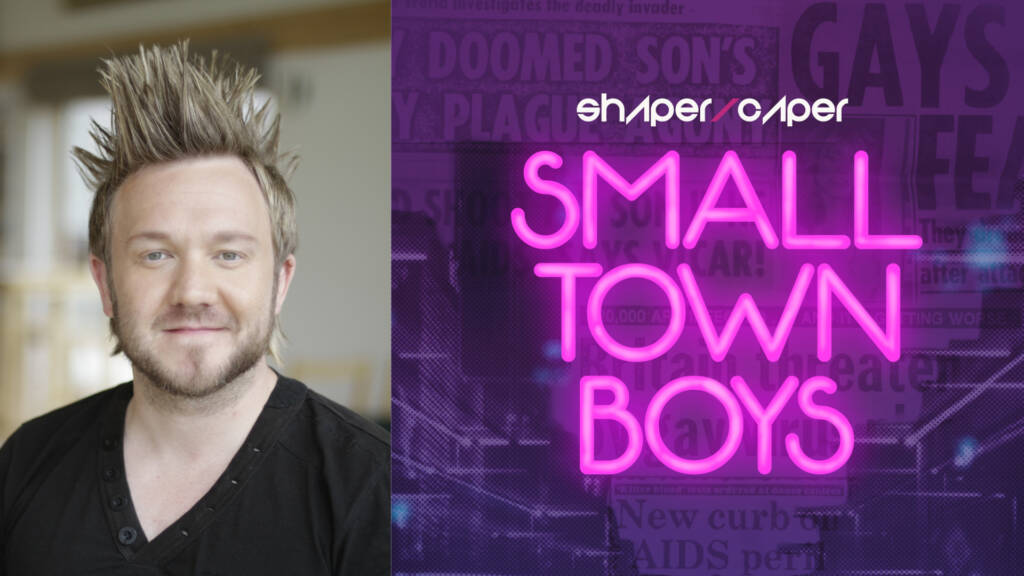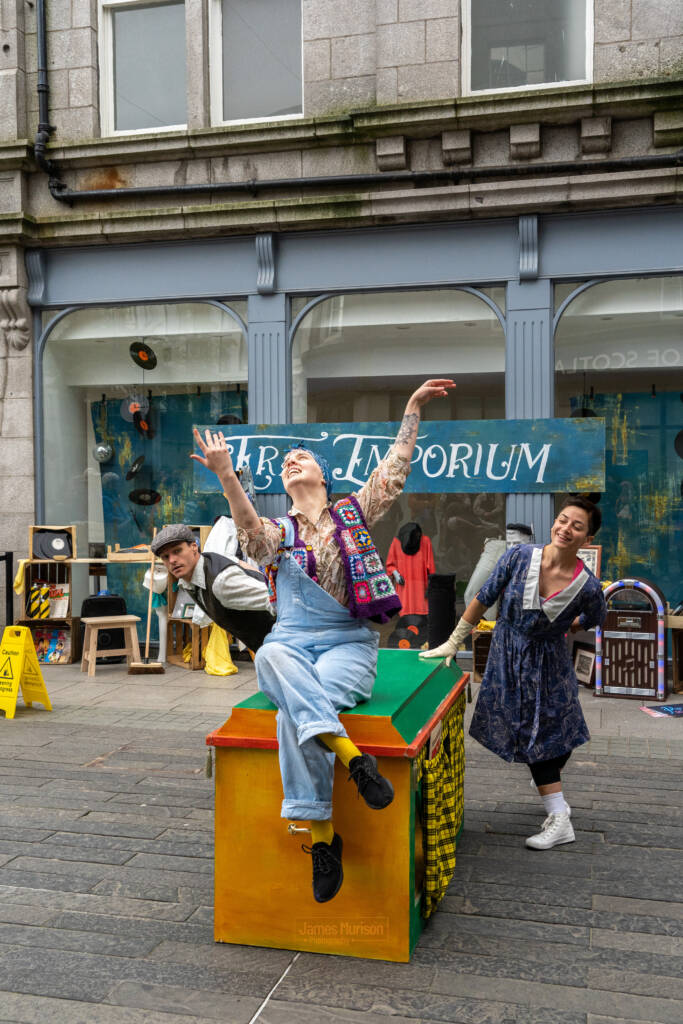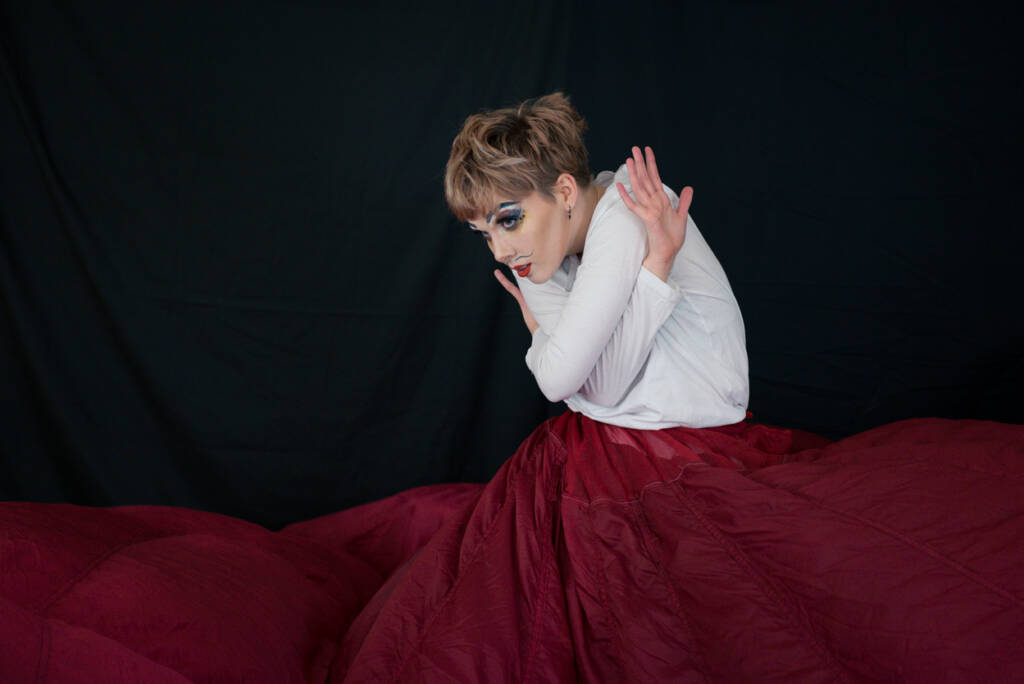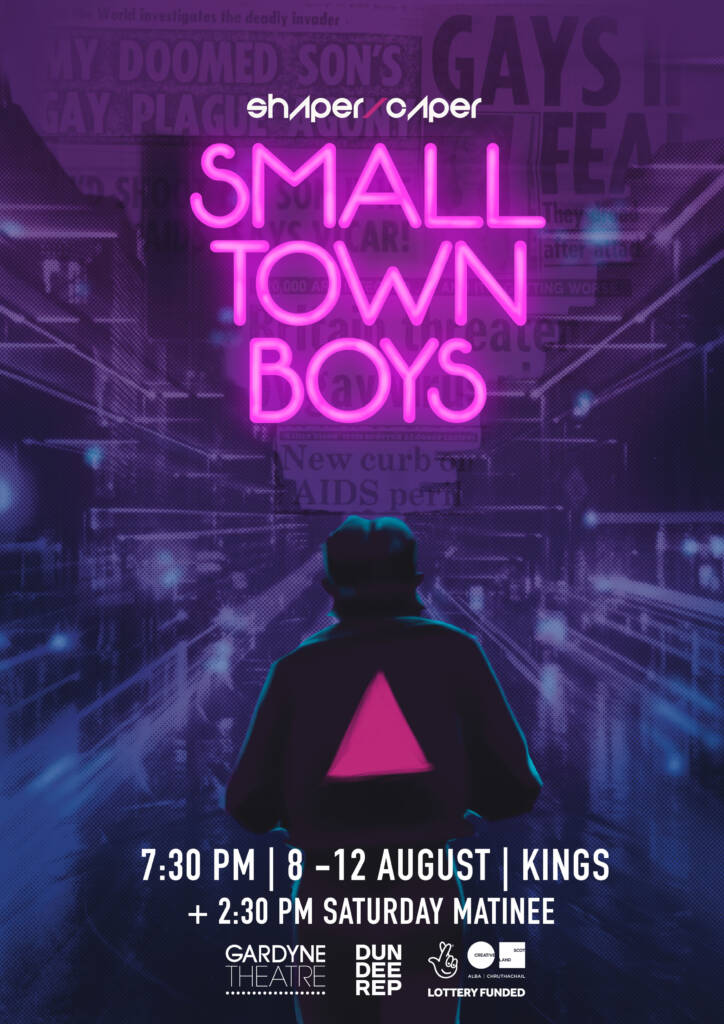
15.06.23

For this guest blog, we’re joined by Dundee-based dance organisation Shaper/Caper, and their Dundonian Artistic Director and Choreographer, Tommy Small. They share more about their upcoming production, Small Town Boys, how dance can be employed for social activism, and their personal and professional dedication to championing LGBTQ+ stories.
At Shaper/Caper, we believe that dance and art are for everyone. You don’t need to be a classically trained ballerina to get a creative kick from moving your body around (or watching someone else do it), so we want to make sure that as many people have access to dance as possible — regardless of background, age, identity, experience, or ability.
As a queer-led charity, supporting queer artists and telling our stories is one of the most important things we do. Whether that’s funding queer artists through our BRAW bursaries and Queer to Stay residency, honouring oral history with our Queer Stories project, exploring trans identity through short films Period and The End, or bringing the community together with our LGBT+ arts festival OutFest — platforming queer voices is at the core of our work.
Dance, our Artistic Director and Choreographer Tommy Small feels, is particularly well suited to telling these stories.
“I’m interested in trying to create work that has an immediate emotional resonance for people. The special, and quite unique, thing about dance, is the way it can go beyond the text, and beyond language in general. We can make something that engages a range of different senses, combining visuals, sound, movement, and environment to give people that emotional response, tapping into their own memories and experience. This is a brilliant tool for social activism, because you can use that connection to build empathy”.


Our newest production, Small Town Boys, explores the importance of queer nightlife spaces in the 80s and early 90s through the story of a young man who leaves his small hometown to find his community in the bright lights of the big city. The show will shed light on the beauty of finding yourself and your people, while also struggling against the international tragedy of the AIDS crisis, and the state-sanctioned silencing of Section 28. Tommy describes his own very personal stake in ensuring these stories are told compassionately.
“I remember growing up as a gay man in the 80s, hearing the horror stories of the AIDS crisis, and internalising that being gay equalled living in a tragedy. Because of Section 28, which prevented the ‘promotion of homosexuality’ by schools, this media horror story was the only narrative we heard about queer life. This is why sharing queer history is so essential today: queer existence is a threat to heteronormative society, which is why they’re so desperate to silence it. We saw that in the past with Section 28, and we see it in the present with drag bans and anti-trans legislation.”
“[Dance] is a brilliant tool for social activism, because you can use that connection to build empathy”
While the anti-queer sentiment may seem more evident abroad, there’s no question as to whether it’s making itself known closer to home too. Last year in December, we were involved with a queer film event produced by DCA, which included a Drag Queen Story Time session that became the target of online transphobic and queerphobic harassment. The event was cancelled for the safety of the performer, local drag queen Miss Peaches, but this was far from the first time that Scottish drag performers – particularly trans or non-binary performers – have been targeted and demonised online, sometimes even by members of the queer community who see trans inclusion as a step too far. Tommy sees this as history repeating itself.
“During the time period that Small Town Boys addresses, there was a very specific way that gay men were presented in the media and viewed in society: as deviant and dangerous, predatory and particularly unsafe to be discussed around children. By learning about this history, we’re able to see the way this discourse is being repeated now with trans and non-binary people as the targets, and not allow those ways of thinking to have a space in our community.”

Despite the hardship and the tragedy that this work often involves engaging with, there’s also a lot to be excited about and celebrate. In 2022, we ran OutFest, Dundee’s LGBTQ+ History Month festival in collaboration with Dundee Pride, with 64 free events across the month, ranging from art workshops, a panel with MSPs, dance performances for all ages, a sober disco, and an online PechaKucha Night with Creative Dundee. As part of this, we also ran the OutFest bursary scheme, supporting a range of queer artists from different disciplines, through funding, advice, and space to share their work. We’ve been able to repeat this programme since through the BRAW bursary scheme, and, most recently, Queer To Stay, a year-long development programme where queer artists can come together, share work, and learn from workshops and masterclasses. Tommy describes the excitement of platforming queer narratives via Small Town Boys.
“There is definitely a power in taking ownership of this queer history and preserving and platforming it”
“As part of researching Small Town Boys, I’ve visited the British Library in London to listen to tapes of gay men talking about their life during the period, and found it a really humbling experience. There is definitely a power in taking ownership of this queer history and preserving and platforming it. Working with the Community Cast of Small Town Boys has also been a really exciting experience, as there’s a lot of joy in bringing together a group of wonderful queer people. A lot of the participants don’t have dance as their main discipline, and a lot of them haven’t really tried dance before, so it’s a lovely thing to support people in stepping outside of their comfort zone and exploring this new language of movement. I personally can’t wait to watch them come together with the pro dancers – it’s going to be a really special thing to see.”
Being able to do all of this in the town where Tommy grew up also adds a particular resonance.
“I grew up in Dundee, which was a very different place then to the amazing city we have now, and I definitely felt that I couldn’t express myself as a gay man without leaving the city. That’s why it’s so important to me that the LGBTQ+ work Shaper/Caper does is centred on Dundee, because I know how important it is to have role models, and see queer people out there living and working close to you.”
“We hope to be able to continue pushing for LGBTQ+ voices to be heard, and stories to be told, in Dundee for many years to come.”
Huge thanks to Tommy and Levi Richards from Shaper/Caper for sharing with us!
Small Town Boys will be running at Kings Dundee from 8–12 Aug, 7:30-8:30pm, with a 2:30pm matinee on Sat 12 Aug. Tickets are priced on a sliding scale (£5, £10, £15) and can be purchased from the Dundee Rep box office.
Small Town Boys is produced in partnership with Gardyne Theatre, Dundee Rep Theatre, and the Terrence Higgins Trust, and is funded by the Creative Scotland Open Fund.

If you would like to support us in creating even better content, please consider joining or supporting our Amps Community.